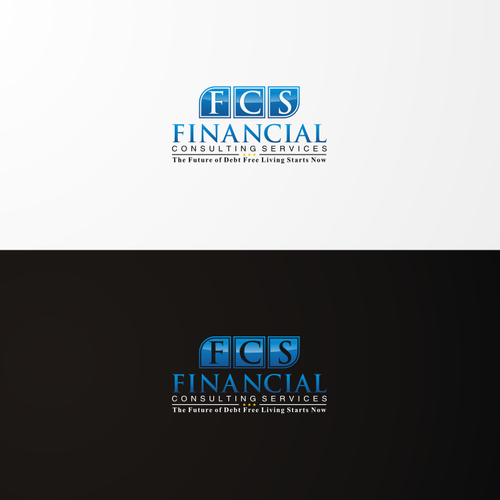
A graduate programme consulting company offers many advantages. This article will cover the duties, salary, and how they are paid. It will also explain how to get into this kind of consultancy and why it's an attractive career choice. Here's a detailed description of the job and the salary scale of graduate-level programme consultants. Below are the main benefits to working as a graduate programme consultant. Continue reading for more information.
Benefits of working on a graduate consulting programme
Graduate programme consulting offers many benefits, such as the ability to learn from and expand an organization's expertise. Graduate consultants can expect to complete everything from the preparation of briefing materials to assist consulting teams to conducting interviews. They can gain practical experience and certifications to help them in their applications. Here are some benefits of working as a graduate consultant.

Opportunities for networking - Many graduate programs offer mentoring opportunities that allow participants to make new contacts within their organization. Ben was paired with an experienced member of staff while he was in the graduate programme. This gave him valuable insight into a particular part of the business. In the same way, recent graduates are paired with their graduate counterparts by other employers. This helps them in their professional development and career advancement. The best part about graduate programs is the possibility to rotate within the organization, which can have a huge benefit over the long term.
Consultant for graduate programmes
Graduate consultants analyse financial data to identify ways to cut overheads and improve profit margins. They can also recommend ways to improve production processes and increase income. Graduate consultants supervise the implementation of their recommendations, providing guidance and assessing the effectiveness of their strategies. Interviews are also conducted to collect and analyse data. They are indispensable in any business environment, especially when it comes to competitive environments.
Graduate consultants can specialize in many fields including IT, economics and business. An undergraduate degree in an area such as geography, geophysics, business or economics is sufficient. However, a minimum of a 2:1 degree is recommended. A lot of people are looking for graduate trainees who have worked in the field. This gives them an advantage. They can also apply to positions based in certifications that help them standout from the crowd.
Salary for graduate programme consultant
The salary of a graduate program consultant varies from one country to the next. Germany, for example, pays 23% more than the UK, while the Middle East pays just over half as much. In the UK, however, salaries are lower than in other countries because UK graduates pay 45% more in tax than their counterparts in other countries. However, this is likely to be offset by the fact that UK consultants have greater access to top talent and can attract top performers for less.

Many graduate employers offer a range of benefits to graduates, including free breakfast and dinner, subsidised exercise classes, and Friday drinks. Graduates can also go into permanent employment in management and technology consulting. Some graduate recruitment agencies offer flexible work arrangements and sabbaticals. Others, such as BCG, have a flexible leave policy and allow their consultants to work part-time during the week.
FAQ
What is the average salary of a consultant?
Some consultants make over $100k per year. However, most consultants only make $25-$50k. The average consultant salary ranges from $39,000 to $39,000. This includes both salaried and hourly consultants.
Salary depends on the experience of the consultant, their location, industry, type and length of the contract (contractor or employee), as well as whether they have their own office or work remotely.
What qualifications do you need to be a consultant?
Not only is it important to have an MBA but you should also have business consulting experience. A minimum of two years' experience in consulting, training and/or advising a major company is necessary.
You should have had experience working with senior management to create strategy. You will need to feel comfortable communicating ideas to clients and getting their support.
A professional qualification exam, such as the Certified Management Consultant (CMC), of the Chartered Management Institute (CMI), is also required.
How much should a consultant charge?
It depends on what service you provide. If you are offering services for free, it is not worth charging anything. But if your services or products are for sale, you will need to establish prices that reflect their value.
If you are offering low-quality services, you don't have much to sell. So why would anyone pay any money for your services.
You might be able ask for a more expensive price if your services are of high quality. People recognize the value in you offering. Customers who buy multiple services from you may qualify for discounts.
Why would you want to hire consultants?
There are many reasons to hire consultants.
-
An organization might have a particular problem or project that requires solving
-
You want to improve your own skills or learn something new
-
You would like to work with an expert in your field.
-
No one else is available to take on the task.
-
You feel overwhelmed by all the information and don’t know where to begin.
-
You can't afford full-time employment
Referrals are the best way for you to find a qualified consultant. Ask around to see if you know any good consultants. If you already know someone who works as a consultant, ask him/her for recommendations.
If you choose to use online directories such LinkedIn, make sure to use the "Search People” function to locate consultants in your area.
How much does it cost to hire a consultant?
There are many factors that go into the cost of hiring a consultant. These include:
-
Project size
-
Time frame
-
Scope and nature of work
-
Fees
-
Deliverables
-
Other considerations include experience level, geographic location, and so forth.
Which industries use consultants
There are many types of consultants. Some focus on one particular type of business while others specialize in more than one area.
While some consultants only work for private companies, others represent large corporations.
Some consultants can also help businesses all around the globe.
Statistics
- On average, your program increases the sales team's performance by 33%. (consultingsuccess.com)
- According to statistics from the ONS, the UK has around 300,000 consultants, of which around 63,000 professionals work as management consultants. (consultancy.uk)
- According to IBISWorld, revenues in the consulting industry will exceed $261 billion in 2020. (nerdwallet.com)
- So, if you help your clients increase their sales by 33%, then use a word like “revolution” instead of “increase.” (consultingsuccess.com)
- 67% of consultants start their consulting businesses after quitting their jobs, while 33% start while they're still at their jobs. (consultingsuccess.com)
External Links
How To
How do you find the best consultant?
First, ask yourself what kind of consultant you are looking for. Before you begin looking for a consultant, it is important to know what your expectations are. It is important to make a list with all the requirements you have for a consultant. These could include professional expertise, technical skills and project management abilities, communication skills, availability, and other things. After you have listed your requirements, it might be a good idea to ask colleagues and friends for their recommendations. Ask your friends or colleagues about any negative experiences they have had with consultants, and compare their recommendations with yours. Try searching online for recommendations if you don’t have any. There are many websites that allow users to leave feedback about their previous work experiences, such as LinkedIn and Facebook, Angie's List or Indeed. Consider the ratings and comments of other candidates and use these data to start your search for potential candidates. Once you have a short list of candidates, contact them to arrange an interview. You should discuss your requirements with the candidates and ask them how they can help. It doesn't matter whether they were recommended to you or not; just ensure that they understand your business objectives and can demonstrate how they can help you reach those goals.